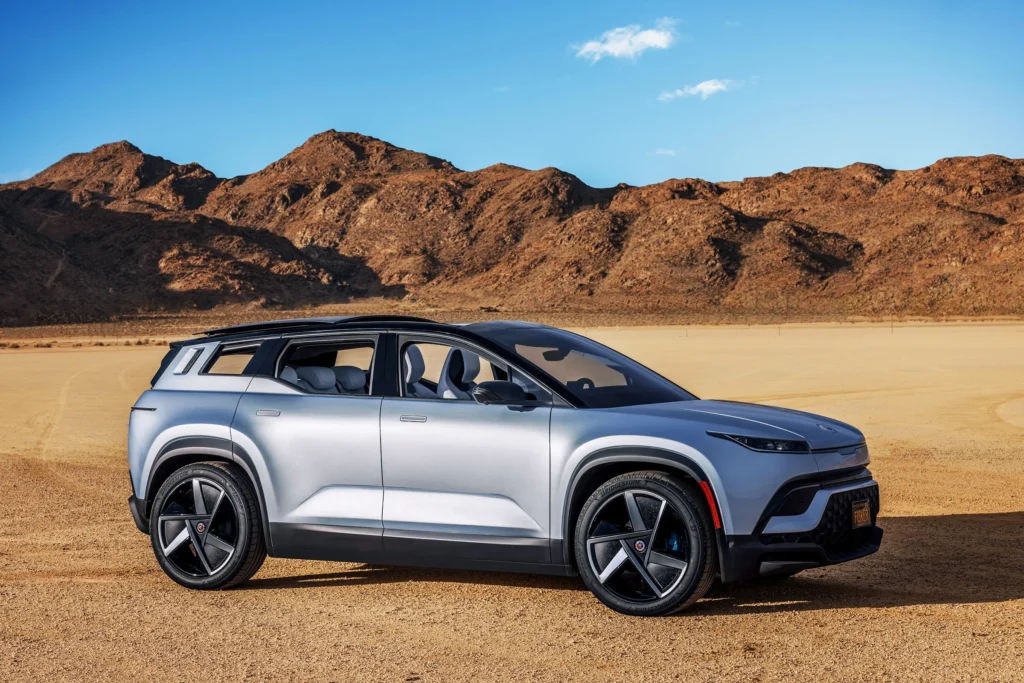Welcome to the electrifying world of EV startups, where innovation meets sustainability. Today, we delve into the rise and fall of Fisker, a once-promising player in the electric vehicle industry that has now made headlines for filing bankruptcy due to cash burn and quality issues. Join us as we explore the highs, lows, and valuable lessons from Fisker’s journey in this fast-paced sector.
The Rise and Fall of Fisker
Fisker Automotive, founded in 2007, made waves in the electric vehicle industry with its sleek designs and eco-friendly ethos. Henrik Fisker, the man behind iconic cars like the BMW Z8 and Aston Martin DB9, brought a touch of luxury to EVs. The company’s first model, the Karma, garnered attention for its hybrid powertrain and striking looks.
Despite initial success, Fisker faced challenges along the way. Production delays and quality issues plagued their vehicles. A high-profile battery recall dealt a significant blow to their reputation. Coupled with fierce competition from established automakers like Tesla, Fisker struggled to stay afloat.
In 2013, after burning through cash and failing to secure additional funding, Fisker filed for bankruptcy. The once-promising startup serves as a cautionary tale in an industry marked by rapid innovation and unforgiving market dynamics.
Reasons for Bankruptcy: Cash Burn and Quality Issues
Fisker’s journey to bankruptcy was fueled by a combination of cash burn and quality issues, creating a perfect storm that ultimately led to their downfall. The aggressive spending on research, development, and marketing without substantial revenue streams drained the company’s financial resources rapidly. As a result, Fisker found themselves struggling to stay afloat amidst mounting debts and limited available capital.
Moreover, quality concerns plagued Fisker throughout its operations, leading to costly recalls, customer dissatisfaction, and damage to the brand’s reputation. Issues with battery performance, software glitches, and production delays further hindered the company’s ability to deliver on its promises effectively.
These challenges underscored the importance of financial sustainability and product excellence in the competitive landscape of the electric vehicle industry. For future EV startups looking to succeed where Fisker faltered, careful financial management and uncompromising commitment to product quality will be crucial factors for long-term viability in this dynamic market.
Impact on the EV Industry
The bankruptcy filing of EV startup Fisker has sent ripples through the electric vehicle industry. It serves as a cautionary tale for other players in the market, highlighting the challenges faced when trying to disrupt a well-established automotive sector.
Investors and consumers alike are now more wary of putting their money into new EV ventures, fearing a similar fate as Fisker. This could lead to decreased funding opportunities for emerging companies looking to make their mark in the industry.
On the flip side, established automakers might use this as an opportunity to showcase their stability and reliability compared to startups like Fisker. They can leverage Fisker’s downfall to strengthen their own positions in the market.
While Fisker’s bankruptcy is unfortunate, it has certainly reshaped perceptions and strategies within the EV industry moving forward.
Lessons Learned from Fisker’s Failure
When looking at the downfall of Fisker, one key lesson that stands out is the importance of managing cash flow effectively in a startup environment. Cash burn can quickly lead to insurmountable challenges, even for promising companies like Fisker.
Additionally, maintaining high-quality standards is crucial for any business aiming for long-term success. The issues faced by Fisker with quality control and production ultimately tarnished its reputation and eroded consumer trust.
Another takeaway from Fisker’s bankruptcy is the significance of strategic partnerships and collaborations within the industry. Building strong alliances can help mitigate risks and provide access to resources that might otherwise be out of reach.
Learning from Fisker’s missteps underscores the need for careful planning, prudent financial management, unwavering commitment to quality, and fostering meaningful relationships within the electric vehicle sector.
The Future of Electric Vehicles
As the electric vehicle industry continues to evolve, the future looks promising with advancements in technology and infrastructure. Major automakers are investing heavily in developing new EV models to meet growing consumer demand for sustainable transportation options.
One of the key areas of focus for the future of electric vehicles is extending driving range and reducing charging times. Innovations in battery technology hold great potential to address these challenges, making EVs more convenient and practical for everyday use.
Moreover, governments around the world are implementing policies to encourage the adoption of electric vehicles through incentives and regulations aimed at reducing carbon emissions. This shift towards cleaner transportation will further drive growth in the EV market as awareness about environmental sustainability increases among consumers.
With ongoing research and development efforts, we can expect to see continued improvements in performance, affordability, and accessibility of electric vehicles. The future holds exciting possibilities for a more sustainable automotive industry powered by innovative EV technologies.
Conclusion: What Can We Expect in the EV Market Moving Forward?
As we look ahead to the future of the electric vehicle market, it’s clear that the industry is rapidly evolving. While Fisker’s bankruptcy serves as a cautionary tale about the challenges faced by EV startups, it also highlights the importance of financial stability and product quality in this competitive landscape.
Moving forward, we can expect to see established automakers continue to invest heavily in electric vehicles, driving innovation and pushing boundaries. Companies will need to prioritize sustainable business models, efficient operations, and consumer trust to succeed in this dynamic environment.
Consumers are increasingly embracing electric vehicles for their environmental benefits and technological advancements. As infrastructure improves and more affordable options become available, EV adoption is expected to soar in the coming years.
While Fisker’s journey may have ended with bankruptcy filings due to cash burn and quality issues, its story serves as a valuable lesson for both aspiring EV startups and established players alike. The key lies in balancing innovation with practicality, sustainability with profitability – ultimately shaping an electrifying future for the automotive industry.
For more details, check out CNBC
Stay tuned for more content only on QAWire

